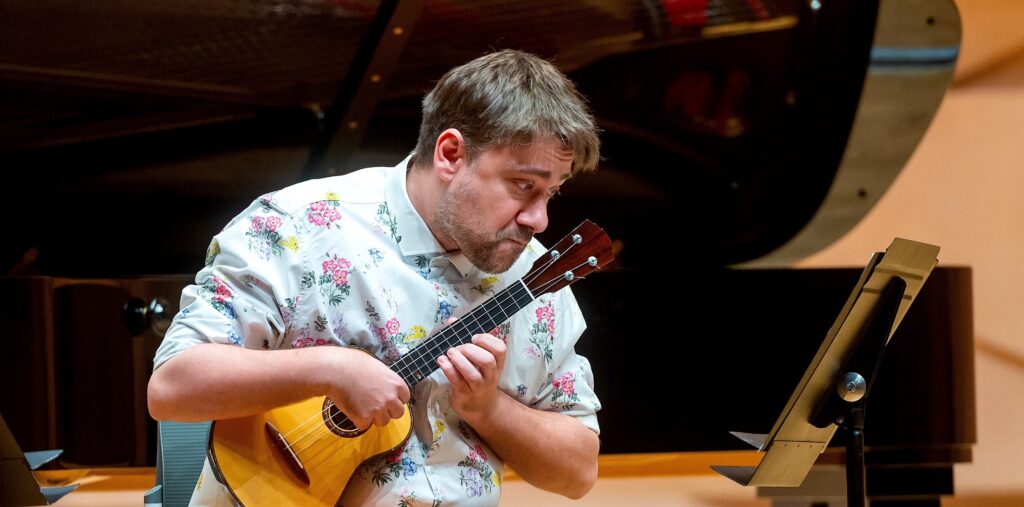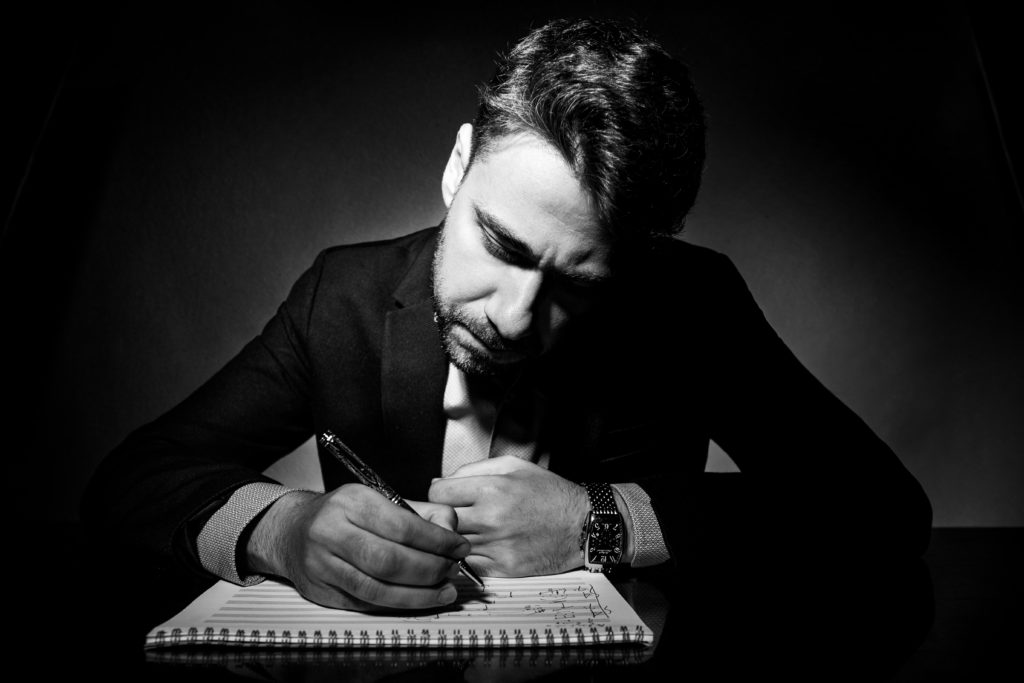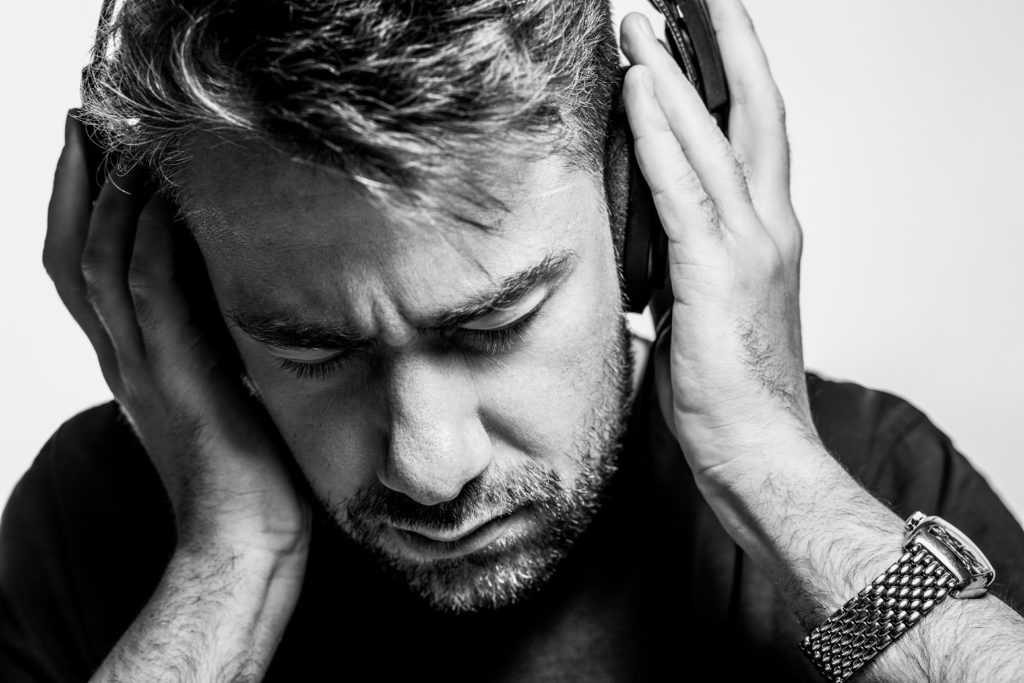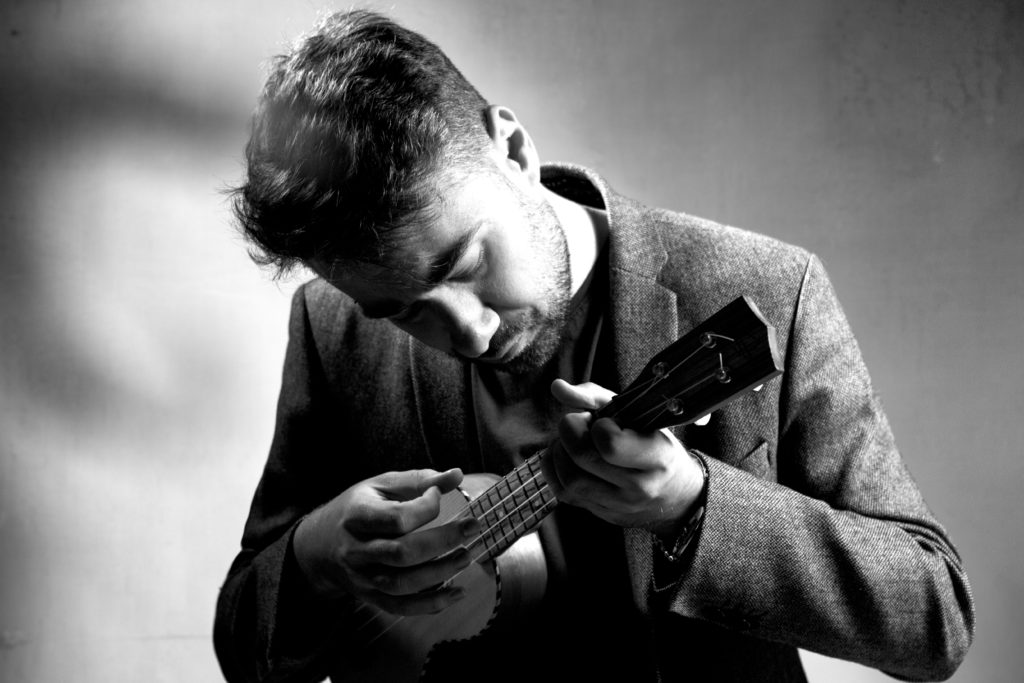
Giovanni Albini (b. 1982) – composer, ukulelist, music theorist and mathematician – has established a Bachelor’s degree program in Ukulele at the Conservatory of Music “Antonio Vivaldi” of Alessandria, the first course of its kind in the world, offering a comprehensive program of study specialized in ukulele performance. Albini is a dedicated advocate for contemporary classical music on the ukulele. As a performer and commissioner, he specializes in bringing to life new compositions tailored for this unique instrument. He also expertly arranges well-known classical and modern scores, contributing to the cultivation of a challenging and refined ukulele repertoire while exploring and enhancing the instrument’s distinct idiomatic qualities. In March 2023, he presented his research on contemporary ukulele music during seminars for composition classes at esteemed institutions like The Juilliard School in New York and the Curtis Institute of Music in Philadelphia. He is co-director of the Ukulele International Conference (UIC) – Interdisciplinary Perspectives on Performance, Composition, and Organology, organized by the Conservatory of Music “Antonio Vivaldi” in Alessandria in collaboration with the University of Milan. His expertise has earned him a place on the faculty roster of the prestigious summer courses organized by Fondazione Campus Internazionale di Musica, hosted in the breathtaking castle of Sermoneta. One of his notable achievements includes the release of the album “A Contemporary Ukulele,” which showcases fourteen new ukulele solo compositions selected from a pool of over forty pieces dedicated to him. The album, published by Da Vinci Classics, has garnered acclaim from reviewers and audiences alike. As a recognized Aquila Corde Armoniche official endorser, Albini had the honor of testing and comparing all nine ukulele string sets offered by the brand, performing in the official videos of Aquila’s YouTube channel, showcasing the unique attributes of these strings. With a rich history of teaching and performing at international festivals, including the Festival Pontino 2023, Monopolele 2022 – Mediterranean Ukulele Fest in Monopoli, Italy, the Czech Ukulele Festival in Únětice, Czech Republic, and Gaithersburg UkeFest in 2021, Albini has left an indelible mark on the ukulele community. His ukulele transcriptions are edited by Ricordi and exclusively distributed by Hal Leonard.
He is a tenured professor of Music Theory, Solfège and Music Perception, member of the academic council, head of research, delegate for international projects, and Ukulele professor at the Conservatory “Antonio Vivaldi” of Alessandria. He is the coordinator of the joint PhD program in “Practices and Repertoires of Italian Music,” administratively based at the Conservatory of Alessandria. He is the scientific director of the national project “Casta Diva”, funded by PNRR funds. He also teaches Composition at the bachelors of the Conservatory of Lugano (Swiss Confederation). He is a member of the Istituto di Studi Superiori dell’Università dell’Insubria “Gerolamo Cardano” (Varese, Italy) and consultant of the Rivista di Analisi e Teoria Musicale (RATM, GATM journal). He taught the seminar Quantitative Methods for Art at The University School for Advanced Studies IUSS Pavia, an Italian Public Institution devoted to research and higher education. He is former professor of Composition, Harmony and Counterpoint at the Conservatory “Claudio Monteverdi” of Bolzano (Italy), of Music Theory and Computer Music at the Conservatory “Francesco Antonio Bonporti” of Trento (Italy), of Mathematical Music Theory, Harmony, Solfége, Acoustics, Arrengement and Transcription and Music Informatics at the “Franco Vittadini” Higher Institute of Music Studies (Pavia, Italy), of Music Theory at the Conservatory “G. Verdi” of Ravenna (Italy) and at the “O. Vecchi – A. Tonelli” Higher Institute of Music Studies of Modena (Italy) where he has also been head of the Music Theory Department. He was visiting lecturer of Analysis Pitch Oriented at the Conservatorio della Svizzera Italiana (Lugano, Swiss Confederation) and visiting lecturer of Music Analysis and lecturer of Game Engines by Sound Perspective at the Estonian Academy of Music and Theatre in Tallinn (Estonia).
He researched 1) algebraic and geometrical formalization of musical elements, theoretically and taxonomically and in connection with compositional techniques, 2) mathematically informed aesthetics of music composition, 3) quantitative methods in music analysis and composition and 4) new technologies for composition and music didactics. On the subject he has given several lectures at many universities, conservatories and institutions, including: Yale University (New Haven, USA), Curtis Institute of Music (Philadelphia, USA), Universidad Nacional Autónoma de México (Mexico City), Open University (Milton Keynes, UK), Lithuanian Union of Composers (Vilnius, Lithuania), Politecnico di Milano (Italy), Biennale di Venezia (Italy).
Albini has composed several concert music scores that have been performed by international soloists, ensembles, and orchestras around the world (Europe, USA, Canada and Japan), as well as many tracks for video art, exhibitions, multimedia, commercials, trailers, videogames and television. His theoretical research focuses on mathematically informed aesthetic theories of music composition, mathematical music theory and its application to the composition practice (paying special attention to Neo-Riemannian theories and graph-theoretical formalizations) and he devoted himself with special interest to music technology, soundtracks for interactive media, algorithmic music and non linear composition systems. Of the several musicians, ensembles and orchestras that have performed his music, the following are worth of mention: the EMTA Symphony Orchestra (conducted by Paul Mägi), the Lithuanian National Symphony Orchestra (conducted by Robertas Servenikas), the Tito Schipa Orchestra of Lecce (conducted by Salvatore Accardo and Massimo Quarta), La Verdi of Milan (conducted by Matthieu Mantanus) the Orquestra Clàsica do Centro di Coimbra, the string quartet of the BBC SSO, the Ex Novo Ensemble, the Algoritmo Ensemble (conducted by Marco Angius), the Ensemble Testori (conducted by Diego Ceretta), Le Cameriste Ambrosiane, Giorgio Mirto, Quartetto Indaco, 15.19 Ensemble, Flavio Virzì, Duo Bonfanti, Anna Wibe, Katerina Shapochka and Grammy nominated mandolinist Avi Avital. His rich catalogue includes noteworthy compositions such as his “Missa Prima” (2012, for mixed choir, commissioned for the re-opening of the Cathedral of Pavia), “Una teoria della prossimità” (2006, for string orchestra), nine string quartets, an extensive list of compositions for guitar, both as a solo instrument and in many chamber and orchestral contexts, and his “Corali”, a collection of compositions for various instrumentations which explores a unique mathematical form of harmonic cycles developed by the composer. Three monographic CDs compiling his most significant chamber, orchestral and sacred scores, “Giovanni Albini: Musica Ciclica”, “Giovanni Albini: Musica Sacra” and “Giovanni Albini: String Quartets” have been published by Brilliant Classics and distributed worldwide (in the USA by Naxos America).
His tracks have been commissioned and used by international brands such as Giorgio Armani, Alfa Romeo, Diesel, BMW, Dovetail Games and Touring Club. He devoted himself with special interest to soundtracks for interactive media: his soundtracks for Mattia Costa’s live films (winner of the Nastro Azzurro Video Talent Award of the Milano Film Festival), his pedagogical application for La Biennale Educational and his software “bach”, third prize of the New Technology section at the third Biennale d’Arte Contemporanea e del Design of Salerno, are worth of notice. Major museums and galleries which featured his soundtracks and sound designs are: ARCO (Madrid), Muntpunt (Bruxelles), La Biennale (Venice), Museo Poldi Pezzoli (Milano), Triennale di Milano, Museo della Storia di Bologna, Palazzo Venaria (Torino), Castello Sforzesco (Milano), Castel dell’Ovo (Napoli), Istituto Nazionale della Grafica (Roma), Museo di Storia Contemporanea (Milano), Palazzo Saraceni (Bologna), Museo Storico di Bergamo, Museo del Risorgimento (Milano), Care Of (Milano), Galerie parisud (Paris), Fortino S. Andrea (Bari), Museo d’Arte Contemporanea (Roma), Kunst Meran in haus der Sparkasse, Galleria Comunale d’Arte Contemporanea (Montefalcone), Salon Primo, Galleria permanente (Milano), Castello Visconteo (Pavia) and Galleria Luciano Inga Pin (Milano). Moreover, he has developed and published music apps for the Google Play Store and the Apple Store.
He is the founding Artistic Director of the highSCORE New Music Center and of the highSCORE Festival, today’s on the principal Italian Contemporary Music Festival offering masterclasses. He wrote about classical and contemporary music in the “Intelligence and Lifestyle” section of the Italian magazine “Il Sole 24 Ore”, the leading italian financial newspaper, and he runs “Perle di Vetro”, a contemporary music column for “Il Corriere Musicale”. He studied Composition at the Conservatory of Lugano and at the “G. Verdi” Conservatory of Milan, achieving a maximum marks ‘Diploma di I livello’ (BM) and a cum laude ‘Diploma di II livello’ (MM). He subsequently received a ‘Diploma di Alto Perfezionamento’ (PgD) in Composition at the prestigious Accademia Nazionale di “Santa Cecilia” in Rome and he also received a BS and a MS in Mathematics and a ‘Diploma’ (MM) in Classical Guitar. He received his Ph.D in music composition from the Estonian Academy of Music and Theatre in Tallinn. His mentors in composition include Ivan Fedele, Mario Garuti, Paul Glass, Toivo Tulev, Tõnu Kõrvits, and Ugo Nastrucci.
He is a tenured professor of Music Theory, Solfège and Music Perception, member of the academic council, head of research, delegate for international projects, and Ukulele professor at the Conservatory “Antonio Vivaldi” of Alessandria. He is the coordinator of the joint PhD program in “Practices and Repertoires of Italian Music,” administratively based at the Conservatory of Alessandria. He is the scientific director of the national project “Casta Diva”, funded by PNRR funds. He also teaches Composition at the bachelors of the Conservatory of Lugano (Swiss Confederation). He is a member of the Istituto di Studi Superiori dell’Università dell’Insubria “Gerolamo Cardano” (Varese, Italy) and consultant of the Rivista di Analisi e Teoria Musicale (RATM, GATM journal). He taught the seminar Quantitative Methods for Art at The University School for Advanced Studies IUSS Pavia, an Italian Public Institution devoted to research and higher education. He is former professor of Composition, Harmony and Counterpoint at the Conservatory “Claudio Monteverdi” of Bolzano (Italy), of Music Theory and Computer Music at the Conservatory “Francesco Antonio Bonporti” of Trento (Italy), of Mathematical Music Theory, Harmony, Solfége, Acoustics, Arrengement and Transcription and Music Informatics at the “Franco Vittadini” Higher Institute of Music Studies (Pavia, Italy), of Music Theory at the Conservatory “G. Verdi” of Ravenna (Italy) and at the “O. Vecchi – A. Tonelli” Higher Institute of Music Studies of Modena (Italy) where he has also been head of the Music Theory Department. He was visiting lecturer of Analysis Pitch Oriented at the Conservatorio della Svizzera Italiana (Lugano, Swiss Confederation) and visiting lecturer of Music Analysis and lecturer of Game Engines by Sound Perspective at the Estonian Academy of Music and Theatre in Tallinn (Estonia).
He researched 1) algebraic and geometrical formalization of musical elements, theoretically and taxonomically and in connection with compositional techniques, 2) mathematically informed aesthetics of music composition, 3) quantitative methods in music analysis and composition and 4) new technologies for composition and music didactics. On the subject he has given several lectures at many universities, conservatories and institutions, including: Yale University (New Haven, USA), Curtis Institute of Music (Philadelphia, USA), Universidad Nacional Autónoma de México (Mexico City), Open University (Milton Keynes, UK), Lithuanian Union of Composers (Vilnius, Lithuania), Politecnico di Milano (Italy), Biennale di Venezia (Italy).
Albini has composed several concert music scores that have been performed by international soloists, ensembles, and orchestras around the world (Europe, USA, Canada and Japan), as well as many tracks for video art, exhibitions, multimedia, commercials, trailers, videogames and television. His theoretical research focuses on mathematically informed aesthetic theories of music composition, mathematical music theory and its application to the composition practice (paying special attention to Neo-Riemannian theories and graph-theoretical formalizations) and he devoted himself with special interest to music technology, soundtracks for interactive media, algorithmic music and non linear composition systems. Of the several musicians, ensembles and orchestras that have performed his music, the following are worth of mention: the EMTA Symphony Orchestra (conducted by Paul Mägi), the Lithuanian National Symphony Orchestra (conducted by Robertas Servenikas), the Tito Schipa Orchestra of Lecce (conducted by Salvatore Accardo and Massimo Quarta), La Verdi of Milan (conducted by Matthieu Mantanus) the Orquestra Clàsica do Centro di Coimbra, the string quartet of the BBC SSO, the Ex Novo Ensemble, the Algoritmo Ensemble (conducted by Marco Angius), the Ensemble Testori (conducted by Diego Ceretta), Le Cameriste Ambrosiane, Giorgio Mirto, Quartetto Indaco, 15.19 Ensemble, Flavio Virzì, Duo Bonfanti, Anna Wibe, Katerina Shapochka and Grammy nominated mandolinist Avi Avital. His rich catalogue includes noteworthy compositions such as his “Missa Prima” (2012, for mixed choir, commissioned for the re-opening of the Cathedral of Pavia), “Una teoria della prossimità” (2006, for string orchestra), nine string quartets, an extensive list of compositions for guitar, both as a solo instrument and in many chamber and orchestral contexts, and his “Corali”, a collection of compositions for various instrumentations which explores a unique mathematical form of harmonic cycles developed by the composer. Three monographic CDs compiling his most significant chamber, orchestral and sacred scores, “Giovanni Albini: Musica Ciclica”, “Giovanni Albini: Musica Sacra” and “Giovanni Albini: String Quartets” have been published by Brilliant Classics and distributed worldwide (in the USA by Naxos America).
His tracks have been commissioned and used by international brands such as Giorgio Armani, Alfa Romeo, Diesel, BMW, Dovetail Games and Touring Club. He devoted himself with special interest to soundtracks for interactive media: his soundtracks for Mattia Costa’s live films (winner of the Nastro Azzurro Video Talent Award of the Milano Film Festival), his pedagogical application for La Biennale Educational and his software “bach”, third prize of the New Technology section at the third Biennale d’Arte Contemporanea e del Design of Salerno, are worth of notice. Major museums and galleries which featured his soundtracks and sound designs are: ARCO (Madrid), Muntpunt (Bruxelles), La Biennale (Venice), Museo Poldi Pezzoli (Milano), Triennale di Milano, Museo della Storia di Bologna, Palazzo Venaria (Torino), Castello Sforzesco (Milano), Castel dell’Ovo (Napoli), Istituto Nazionale della Grafica (Roma), Museo di Storia Contemporanea (Milano), Palazzo Saraceni (Bologna), Museo Storico di Bergamo, Museo del Risorgimento (Milano), Care Of (Milano), Galerie parisud (Paris), Fortino S. Andrea (Bari), Museo d’Arte Contemporanea (Roma), Kunst Meran in haus der Sparkasse, Galleria Comunale d’Arte Contemporanea (Montefalcone), Salon Primo, Galleria permanente (Milano), Castello Visconteo (Pavia) and Galleria Luciano Inga Pin (Milano). Moreover, he has developed and published music apps for the Google Play Store and the Apple Store.
He is the founding Artistic Director of the highSCORE New Music Center and of the highSCORE Festival, today’s on the principal Italian Contemporary Music Festival offering masterclasses. He wrote about classical and contemporary music in the “Intelligence and Lifestyle” section of the Italian magazine “Il Sole 24 Ore”, the leading italian financial newspaper, and he runs “Perle di Vetro”, a contemporary music column for “Il Corriere Musicale”. He studied Composition at the Conservatory of Lugano and at the “G. Verdi” Conservatory of Milan, achieving a maximum marks ‘Diploma di I livello’ (BM) and a cum laude ‘Diploma di II livello’ (MM). He subsequently received a ‘Diploma di Alto Perfezionamento’ (PgD) in Composition at the prestigious Accademia Nazionale di “Santa Cecilia” in Rome and he also received a BS and a MS in Mathematics and a ‘Diploma’ (MM) in Classical Guitar. He received his Ph.D in music composition from the Estonian Academy of Music and Theatre in Tallinn. His mentors in composition include Ivan Fedele, Mario Garuti, Paul Glass, Toivo Tulev, Tõnu Kõrvits, and Ugo Nastrucci.







